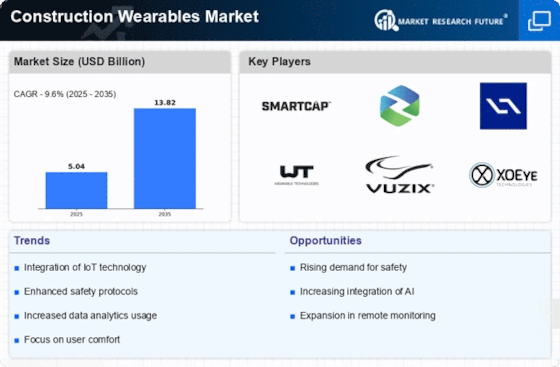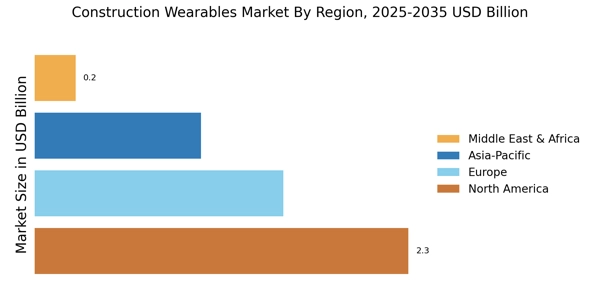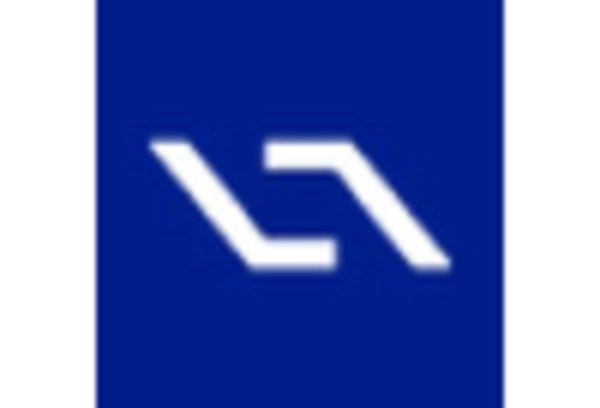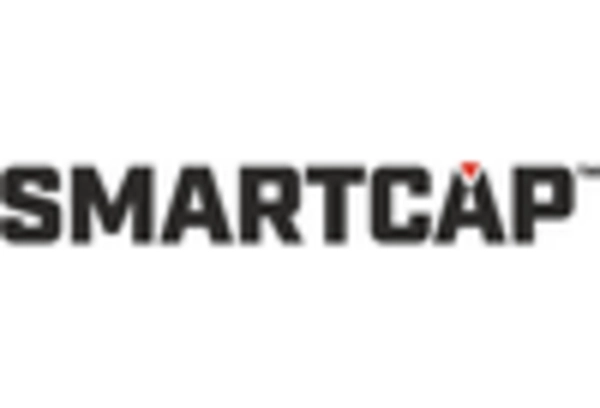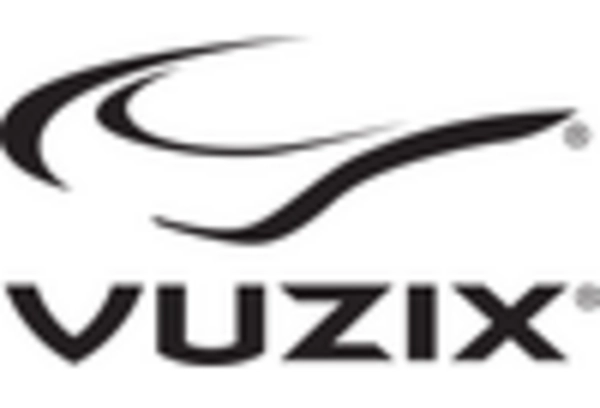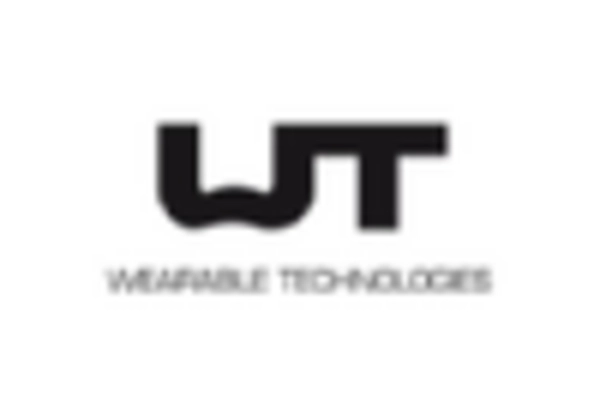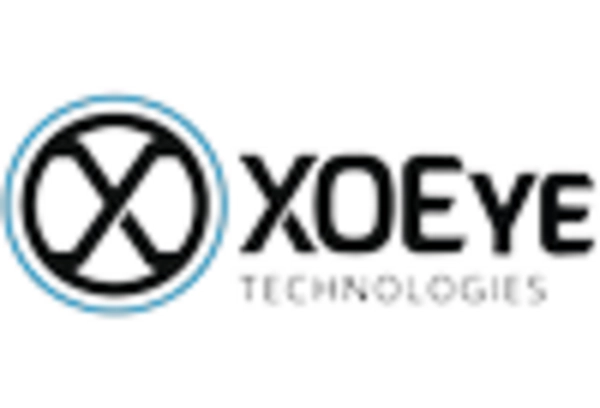Increased Focus on Worker Safety
The Construction Wearables Market is experiencing a notable surge in demand due to an increased focus on worker safety. As construction sites are inherently hazardous, the adoption of wearables that monitor health metrics and environmental conditions is becoming essential. For instance, wearables equipped with sensors can detect fatigue levels, heart rates, and exposure to harmful substances, thereby preventing accidents. According to recent data, the market for safety wearables is projected to grow at a compound annual growth rate of 15% over the next five years. This trend indicates that companies are prioritizing the well-being of their workforce, which is likely to drive further innovation in the Construction Wearables Market.
Regulatory Compliance and Standards
Regulatory compliance is becoming a critical driver for the Construction Wearables Market. Governments and regulatory bodies are implementing stringent safety standards that necessitate the use of advanced safety equipment, including wearables. Compliance with these regulations not only ensures worker safety but also protects companies from potential legal liabilities. As a result, construction firms are increasingly investing in wearables that meet these standards. Recent statistics indicate that companies adhering to safety regulations can reduce workplace accidents by up to 30%. This emphasis on compliance is likely to stimulate growth in the Construction Wearables Market as firms seek to align with evolving regulations.
Growing Demand for Real-Time Data Analytics
The demand for real-time data analytics is reshaping the Construction Wearables Market. Wearable devices that provide instant feedback on worker performance and environmental conditions are becoming indispensable. These devices enable project managers to make informed decisions quickly, thereby enhancing productivity and efficiency on construction sites. The market for data-driven wearables is projected to expand by 18% annually, as companies recognize the value of actionable insights derived from wearable technology. This trend suggests that the Construction Wearables Market will continue to evolve, driven by the need for real-time data to optimize operations.
Rising Adoption of Remote Monitoring Solutions
The rising adoption of remote monitoring solutions is significantly impacting the Construction Wearables Market. With the increasing complexity of construction projects, the ability to monitor workers remotely through wearables is becoming crucial. These devices allow for continuous tracking of worker health and safety, even in challenging environments. Market analysis indicates that the segment of remote monitoring wearables is expected to grow by 25% over the next few years, as companies seek to enhance oversight and ensure compliance with safety protocols. This trend highlights the potential for growth in the Construction Wearables Market as firms leverage technology to improve operational efficiency.
Technological Advancements in Wearable Devices
Technological advancements are significantly influencing the Construction Wearables Market. Innovations in sensor technology, battery life, and data analytics are enhancing the functionality of wearable devices. For example, the integration of augmented reality (AR) in helmets allows workers to visualize complex information in real-time, improving decision-making on-site. Furthermore, the development of lightweight materials is making wearables more comfortable for prolonged use. Market data suggests that the segment of smart helmets is expected to witness a growth rate of 20% annually, reflecting the increasing acceptance of advanced technologies in construction. This evolution in technology is likely to propel the Construction Wearables Market forward.


